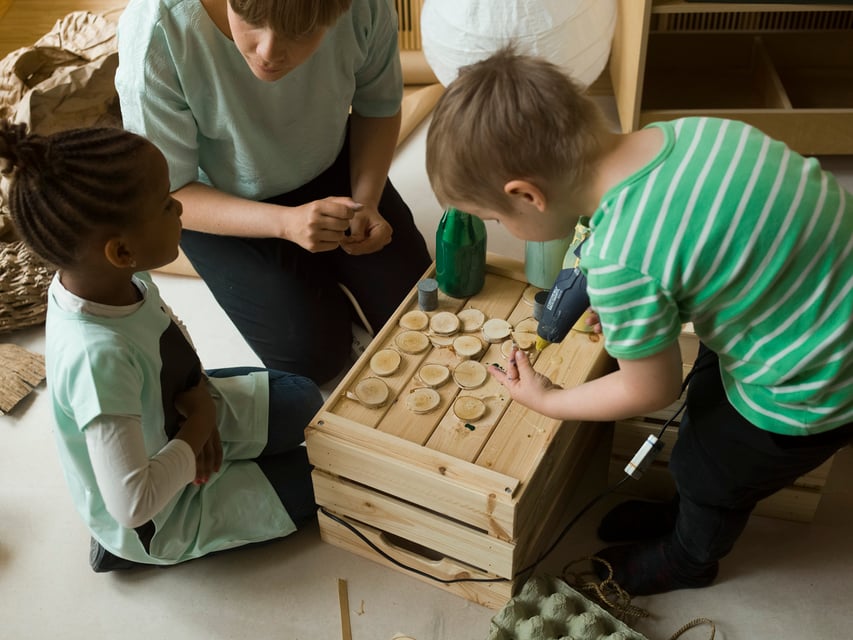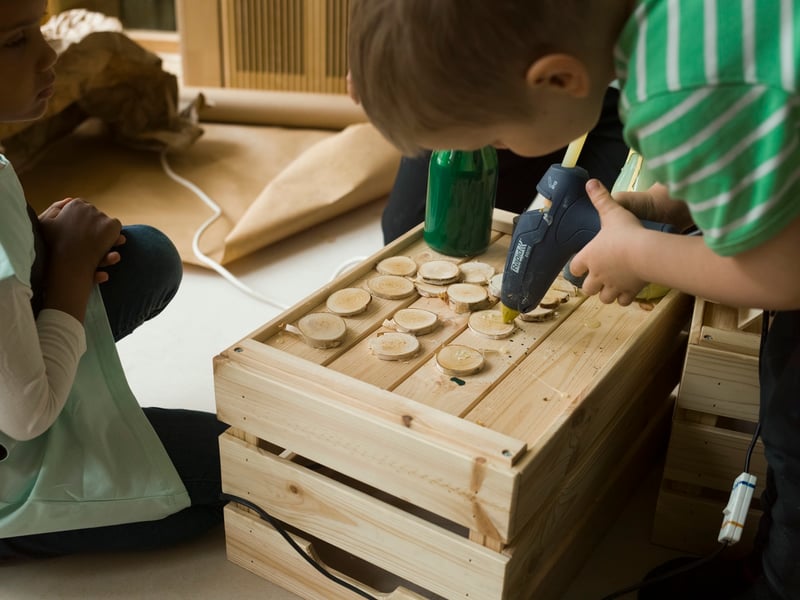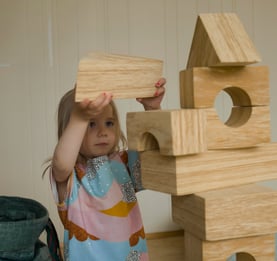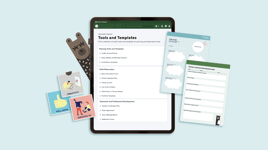Can play-based learning support academic skills?

In the ever-evolving landscape of education, one question continues to captivate educators, parents, and researchers: Can play-based learning truly support the development of academic skills? While traditional teaching approaches often separate play and academics, recent studies at many educational institutions have shown the undeniable connections between these two. In this blog, we'll uncover this close relationship between play and learning, and how play-based learning can be a powerful tool for enhancing academic skills.
Can play-based learning support learning academic skills?
Yes, Play-based learning can be used as a tool to support academic learning, helping children to better understand and retain information according to recent research.
Academic benefits through play-based learning
 Harvard's Graduate School of Education has been a strong proponent of play-based learning for young children. Research conducted at Harvard and other institutions has shown that play is essential for children's development and that it can have many benefits for children's cognitive, social, and emotional growth. Here are a few key points from Harvard's research on play-based learning:
Harvard's Graduate School of Education has been a strong proponent of play-based learning for young children. Research conducted at Harvard and other institutions has shown that play is essential for children's development and that it can have many benefits for children's cognitive, social, and emotional growth. Here are a few key points from Harvard's research on play-based learning:
- Play supports cognitive development: Play-based learning can help children develop cognitive skills such as problem-solving, critical thinking, creativity, and language development. Children who engage in play-based learning are better able to retain information and apply it in different contexts.
- Play promotes social-emotional development: Play-based learning provides children with opportunities to interact with others, develop communication and cooperation skills, and build social relationships. Children who engage in play-based learning are better able to regulate their emotions, manage stress, and develop a sense of empathy for others.
- Play-based learning is developmentally appropriate: Play-based learning is well-suited to the developmental needs of young children. It provides children with a safe and supportive environment where they can explore, experiment, and learn through trial and error.
- Play-based learning is enjoyable: Play-based learning is fun and engaging for children, which can lead to higher levels of motivation and a love of learning. Children who engage in play-based learning are more likely to be interested and invested in their own learning.
How to learn academic skills through play?
Academic learning can certainly be combined with play-based learning in a way that is developmentally appropriate and engaging for young children. For example, a teacher might use games or activities to help children learn math concepts such as counting, sorting, and pattern recognition. A reading lesson might be accompanied by a dramatic play activity where children act out scenes from a story, helping them to better understand and remember the plot and characters.

Here are a few examples of how academic learning can be combined with play-based learning:
- Language and Literacy: Teachers can use games, songs, and stories to help children learn language and literacy skills such as phonics, vocabulary, and comprehension.
- Math: Teachers can use manipulatives, puzzles, and games to help children learn math concepts such as counting, addition and subtraction, and measurement.
- Science: Teachers can use hands-on experiments, observations, and investigations to help children learn about the natural world and scientific concepts such as cause and effect, classification, and observation.
- Social Studies: Teachers can use role-playing, simulations, and cultural activities to help children learn about social studies concepts such as geography, history, and culture.
By combining academic learning with play-based learning, teachers can help children develop a deeper understanding and appreciation for academic subjects while still keeping the learning experience fun and engaging. The key is to use developmentally appropriate activities and materials that are aligned with the children's interests and abilities.
How to implement play-based learning?

In order to successfully implement play-based learning, it is important to consider the approach or curriculum that is currently being used. Play-based activities can be easily incorporated into the daily routine of any classroom, regardless of the existing pedagogical structure. These activities can serve as a complementary tool to enhance the learning experience and make it more engaging for young children.
Alternatively, educators may choose to adopt a play-based curriculum, such as the HEI Schools Toolkit, which is specifically designed to be used in kindergartens and preschools worldwide. This comprehensive curriculum provides teachers with a holistic framework that integrates play-based learning into every aspect of the educational program. With its well-structured lesson plans, interactive materials, and age-appropriate activities, the HEI Schools Toolkit ensures that both teachers and students can fully benefit from the play-based approach.
 Implementing a play-based curriculum or incorporating play-based activities requires proper training and support for educators. Many teachers may not have received training on playful learning during their basic education, so it is important to provide them with the necessary knowledge and skills. HEI Schools understands the importance of teacher training and offers comprehensive programs to help educators embrace the play-based approach. By equipping teachers with the confidence and understanding they need, HEI Training programs empower them to create enjoyable and effective learning experiences for their students.
Implementing a play-based curriculum or incorporating play-based activities requires proper training and support for educators. Many teachers may not have received training on playful learning during their basic education, so it is important to provide them with the necessary knowledge and skills. HEI Schools understands the importance of teacher training and offers comprehensive programs to help educators embrace the play-based approach. By equipping teachers with the confidence and understanding they need, HEI Training programs empower them to create enjoyable and effective learning experiences for their students.
More tips and best practices for bringing play-based learning into your classrooms can be found here in our special webinar.
Ready to bring play-based learning to your school(s)?
At HEI Schools, our long-lasting commitment lies in the philosophy of play-based pedagogy and we continually refine our curriculum to align with both international and national educational standards. Discover more about the HEI Schools Curriculum and explore an illustrative example of children engaging in mathematical play amidst the wonders of nature.
Whether you are an enthusiastic educator seeking to learn more about play-based learning or a kindergarten or preschool looking to adopt this methodology, we can help you on your journey toward implementing play-based learning, ultimately leading to a more enriching and fulfilling educational experience for both teachers and children.





